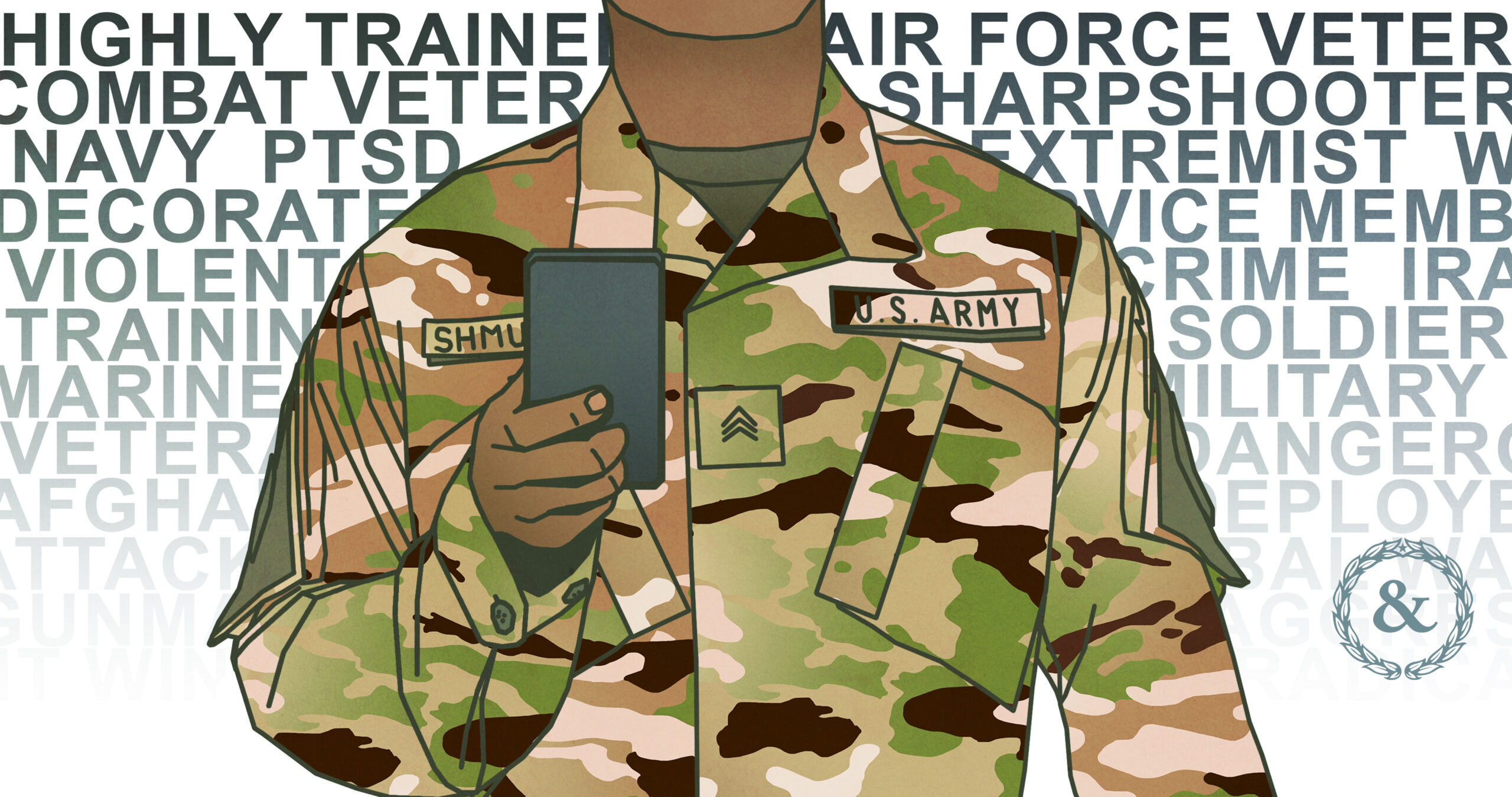

Military service “is the single strongest individual-level predictor” if someone will carry out or plan to carry out a mass casualty event, researchers have found.
That’s according to the University of Maryland’s National Consortium for the Study of Terrorism and Responses to Terrorism, or START. Researchers with START looked at cases of extremist violence from 1990-2022, examining ideologies, success rates and motivating factors. They found that extremists with military backgrounds were 2.41 times more likely to plan or carry out a mass casualty event — defined as killing or injuring four or more people — than anyone without military experience.
Service is the largest indicator, more so than mental health issues, previous criminal experience or age. Researchers found that 170 of the 451 people in the database who had military backgrounds and carried out or attempted to carry out extremist violence were listed as mass casualty perpetrators. The majority of cases, 73.5%, were linked to right-wing ideologies. Roughly 40% were linked to white supremacist or nativist views, which includes extremists with ties to groups like the Ku Klux Klan or Neo-Nazis. Only 15% was tied to Islamist extremism.
Subscribe to Task & Purpose Today. Get the latest military news and culture in your inbox daily.
START researchers also found that extremists with military backgrounds were more successful at carrying out mass casualty events, coming in at 9% of the overall plots; non-military extremists were only 5.2% successful. 78.2% of extremists who carried out these attacks did so six or more years after leaving the armed forces. It also found that 44.7% of mass casualty offenders had backgrounds in the U.S. Army, the highest plurality for a service branch.
“As our previous research on the link between extremism and the U.S. military shows, service members and veterans are not more likely to radicalize to the point of violence than members of the general population,” researchers wrote in the brief. “However, this research brief illustrates that when service members and veterans do radicalize, they are more likely to plan for, or commit, mass casualty crimes, thus having an outsized impact on public safety.”
The Department of Defense has previously said that many extremists groups encourage already radicalized members to enlist in the military in order to gain skills that could help their causes. Identifying and weeding out extremist recruits has been a challenge for the military, according to both the Pentagon and outside groups. Extremist groups also look to recruit veterans for their skills, specifically combat training.
Since 2020, there have been several attacks or foiled plots involving active-duty service members and veterans. Many have been linked to Neo-Nazi organizations as well as right-wing anti-government groups such as the Boogaloo movement.
The study comes only three weeks after the Department of Defense was failing to fulfill five out of six recommendations put forth by a Pentagon working group to combat extremism in the military. In the wake of the Jan. 6, 2021 insurrection at the Capitol, the department initiated a series of efforts to address extremism in the ranks, including a servicewide stand-down in March that year. A series of recommendations were released by the study group, but this May, CNN reported that the department had essentially given up on implementing them. Much of that failure to follow through on the recommendations came as a result of criticism from conservative pundits and lawmakers who said the military was “woke,” a claim leaders including Chairman of the Joint Chiefs of Staff Mark Milley have rejected.
The START study comes with recommendations for officials on how to address the issue. That includes better data collection by the Department of Defense on extremism, teaching civic education to recruits as part of military training and investing in programs to counter extremism in veterans. Researchers also called on the Department of Veterans Affairs and veterans networks to invest in programs to help veterans boost their socio-economic well being and build healthy social communities.
The latest on Task & Purpose
- Air Force said AI drone killed its human operator in a simulation
- The Army says it’s made ‘significant improvements’ to its troubled new infantry squad vehicle
- What we know about China’s hacking of Navy systems
- Taliban moving captured US military vehicles and Soviet tanks to Iranian border
- Five juveniles arrested for attack on Marines caught on video